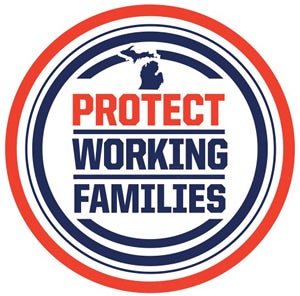Uncategorized
Collective Bargaining on the Ballot in Michigan
Message from Jim Hoffa, General President
 The Greatest Generation won two World Wars, put a man on the moon, built the interstate highway system and created the most dynamic economy on earth. Between 1946 and 1973, the U.S. economy was a powerhouse. The middle class grew strong and millions of Americans rose out of poverty. The words “Made in America” meant something—something the world envied.
The Greatest Generation won two World Wars, put a man on the moon, built the interstate highway system and created the most dynamic economy on earth. Between 1946 and 1973, the U.S. economy was a powerhouse. The middle class grew strong and millions of Americans rose out of poverty. The words “Made in America” meant something—something the world envied.
The Greatest Generation recognized that if people have a right to capitalize their ideas and their country’s resources, then people also have the right to capitalize their labor. When the Greatest Generation ran the country, workers bargained collectively for their fair share of the prosperity they created.
Those important rights should be protected as part of the state constitution. I urge Michigan voters to support the Protect Working Families initiative on the ballot in November.
Collective bargaining built America’s great middle class after World War II. It created a virtuous loop that strengthened the American economy. Workers bargained for better wages and benefits. Their spending fueled even more manufacturing and even more jobs. Collective bargaining allowed employers and employees to negotiate their differences productively, to work together to solve problems, to find efficiencies and to build better products.
Those rights have been weakened by job-killing trade deals that let employers pit American workers against low-paid, unskilled foreign workers. Globalization is severely weakening collective bargaining rights.
Collective bargaining rights are under attack, threatening our middle class. It’s no coincidence that the middle class is shrinking as collective bargaining rights are being taken away. The U.S. Census Bureau says the middle class makes up 51 percent of adults, down 16 percent from 1971. In the past decade, the median income for the middle class fell to $69,847 from $72,956, and median wealth fell 28 percent.
We’ve already seen what collective bargaining did to help save the auto industry. Auto management and auto workers negotiated to make historic changes in production, pay and benefits. Since then, productivity has increased, government loans have been repaid and sales have soared. That couldn’t have happened without collective bargaining.
Voting Yes on 2 to protect collective bargaining rights should be a no-brainer for Michigan voters—because it’s good for all of us.